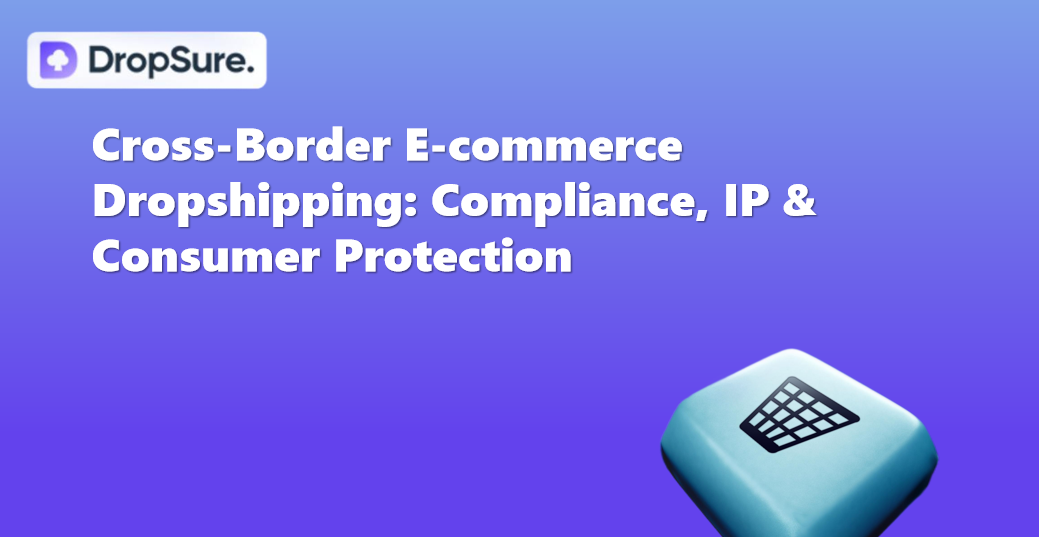
In today’s fiercely competitive e-commerce market, dropshipping—a business model that requires no inventory—has attracted an increasing number of entrepreneurs.
However, this model isn’t for everyone. Before diving into dropshipping, it’s essential to understand your own strengths and needs. This article will provide a detailed analysis of who is best suited for dropshipping and help you determine if this model is right for you.
The Core Features of Dropshipping
The great thing about Dropshipping is that you don’t have to worry about inventory at all. You don’t have to make a big purchase all at once, and you don’t have to worry about renting a warehouse or worrying about products piling up – it’s all taken care of by the supplier. They take care of the shipping and inventory management, which greatly reduces the financial strain on your initial operations. This way, you can focus more on marketing and customer service without having to obsess over the tedious details of logistics and warehousing.
In addition, Dropshipping has very low startup costs. You only need to invest a small amount of money to get started, and you don’t need to pay high stocking fees right off the bat. For those of you who are on a budget or want to test the waters first, this is a huge boon! What’s even better is that this model allows you to manage your business anytime, anywhere – as long as you have internet access, it’s easy to work whether you’re at home, in a café or on the beach. This is definitely ideal for those who are looking for a free lifestyle, digital nomad or telecommuting.
But, then again, as convenient as Dropshipping is, it also requires a certain level of technical skill on your part. To really do a good job with an e-commerce site, you not only need to be able to use a variety of platform building tools, but you also need to know a little bit about digital marketing and communication skills – after all, the customer always comes first. Therefore, only those who are both creative and willing to constantly improve their skills can go farther down the road and really stand out.
Dropshipping: Who Is It For?
With the booming growth of e-commerce, dropshipping has become a popular choice for both full-time entrepreneurs and those looking for a side hustle. Compared to traditional inventory management and logistics operations, dropshipping offers the advantages of a low capital barrier and a simple operating process.
So, which groups of people are best suited to try dropshipping? Below, we’ll take a closer look at three categories of potential dropshipping enthusiasts.
First-Time Entrepreneurs

For those just stepping into the world of entrepreneurship, dropshipping provides a low-risk, low-barrier path to starting a business. With a low capital requirement, you can begin with minimal investment, which reduces the financial risks associated with potential failures. The process is simple—no need for complex inventory management or logistics expertise—making it ideal for those who lack experience. Moreover, by setting up your website, handling marketing, and selecting products, you can quickly gain valuable hands-on experience.
Note: First-time entrepreneurs should pay special attention to choosing the right direct selling platform and learn the basics of ad placement and traffic generation techniques. Additionally, taking advantage of free trial plans offered by platforms like Shopify can help you launch your online store at a very low cost.
Digital Marketing Enthusiasts

If you excel at or are passionate about digital marketing, dropshipping offers an excellent platform to showcase and enhance your skills. In this model, success largely hinges on precise promotional strategies—marketing is king. With no need to worry about product manufacturing or logistics issues, you can focus all your resources on driving traffic and optimizing conversion rates. For those familiar with or interested in learning Facebook Ads, or TikTok marketing, dropshipping is an ideal testing ground.
Note: Although digital marketing is full of opportunities, it can also be relatively expensive. Be sure to learn how to control your ad budget precisely, ensuring a healthy balance between your investment and returns.
People Looking for a Side Hustle
For those who already have a stable job but wish to expand their income sources, dropshipping is an extremely flexible part-time venture. Running a dropshipping store doesn’t require full-time commitment—you can manage your store after work or on weekends. By leveraging automation tools (for example: …), you can significantly reduce the time spent on manual tasks, making operations much easier. This side hustle not only boosts your income but also continuously builds your entrepreneurial experience.
Entrepreneurs with an International Perspective

The global nature of dropshipping allows entrepreneurs with an international vision or resources to sell products to a worldwide market, rather than being limited to local consumers. With the continuous growth of cross-border e-commerce, global operations offer more opportunities than ever. Characteristics that suit these entrepreneurs include having a language advantage—being proficient in foreign languages such as English or Spanish makes it easier to communicate with overseas customers and suppliers—and possessing market insights to understand the consumption habits and demands of different countries, allowing for better product positioning and tailored marketing strategies.
Note: International markets involve more complex issues in logistics, payments, and returns. It is crucial to plan appropriate solutions in advance to ensure smooth global operations.
Who Is Not Suited for Dropshipping?
While dropshipping—as an e-commerce model that eliminates the need for inventory—offers benefits like reduced financial pressure and low startup costs, it isn’t the right fit for everyone. The following groups of people might not be well-suited for dropshipping:
People Who Need Quick Returns
Dropshipping isn’t a get-rich-quick scheme. It usually takes time to gain experience, optimize your operating strategies, and build brand credibility.
Characteristics:
Those who expect high returns in a short period.
Those who lack the patience to invest time in long-term planning and continuous optimization.
Note: If you urgently need substantial short-term earnings, you may need to reconsider whether dropshipping is the right entrepreneurial model for you.
People Unwilling to Learn Technical Skills
Successfully running a dropshipping business requires some technical know-how, including website setup, ad placement, and search engine optimization (SEO).
Characteristics:
Those who have little interest or patience for learning technical skills.
Those who prefer to rely entirely on others to handle technical matters but don’t have a sufficient budget to do so.
Note: If you’re not willing to invest the time and effort in learning these basic skills, you might encounter difficulties in running your business, which could hinder its growth.
People Who Want Full Control Over Every Process
In the dropshipping model, external suppliers manage the supply chain and logistics. This means that sellers have limited direct control over shipping times and product quality.
Characteristics:
Those who want to control every step from production to delivery.
Those who are skeptical about relying on suppliers and are uncomfortable outsourcing parts of the business process.
Note: If you’re looking for complete control over product quality and shipping speed, dropshipping might not meet your expectations.
Is Dropshipping Right for You?
Dropshipping’s low cost and high flexibility have made it the top choice for many budding entrepreneurs. However, the key to success lies in finding the approach that fits you best. If you’re willing to invest time in learning and experimenting, have an interest in digital marketing or e-commerce operations, and want to enter the e-commerce arena with lower risks, then dropshipping might just be the entrepreneurial path for you.
Success isn’t easy, but if you choose the right direction and stay persistent, you’re bound to see rewards. For more hands-on advice or case studies, feel free to explore other posts on our blog, such as “Must-Have Tools for Dropshipping Beginners” and “How to Choose High-Profit Products.” Wishing you smooth sailing on your entrepreneurial journey!

 8 min read
8 min read









